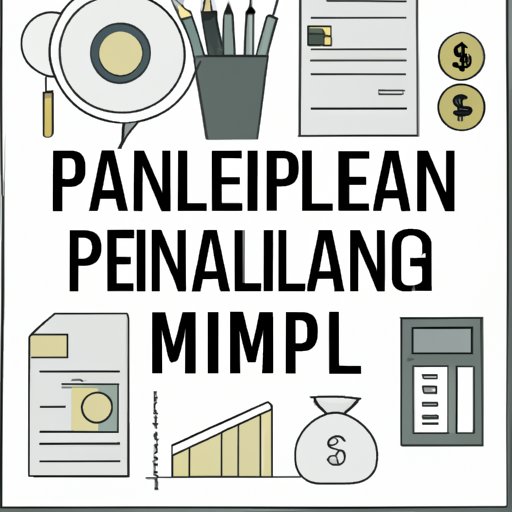Introduction
A financial planner is a professional who can help you manage your finances. They provide guidance on budgeting, saving, investing, taxes, retirement planning, and other areas related to money management. Working with a financial planner can help you reach your short-term and long-term financial goals and build wealth over time. But is hiring a financial planner the right move for you? This article will explore the pros and cons of working with a financial planner and when is the best time to hire one.
Pros and Cons of Hiring a Financial Planner
Before you decide if you should hire a financial planner, it’s important to understand the advantages and disadvantages of working with one. Here’s an overview of the pros and cons.
Advantages of Working with a Financial Planner
The primary benefit of hiring a financial planner is that they can help you better manage your finances. A financial planner can provide tailored advice based on your individual situation and help you achieve specific goals like buying a home or retiring early. According to a study from the CFP Board, “Americans who work with a CFP® professional are twice as likely to feel very confident in their ability to meet their current and future financial goals.” Working with a financial planner can also help you make smarter decisions with your money and create a plan for achieving financial security.
Disadvantages of Working with a Financial Planner
The main disadvantage of working with a financial planner is the cost. Depending on the services offered, you may have to pay a fee for the financial advice. Some financial planners charge by the hour while others charge a flat fee or a percentage of assets managed. Additionally, some financial planners may try to push products or investments that benefit them more than they do you. That’s why it’s important to do your research and find a financial planner who is trustworthy and has your best interests in mind.
Timing is Everything: When is the Right Time to Get a Financial Planner?
When is the right time to get a financial planner? It depends on your individual circumstances. Here’s a look at different stages of life and when you might consider getting a financial planner.
Early Career Planning
If you’re just starting out in your career, you may be wondering if you need a financial planner. While you don’t necessarily need to hire a financial planner right away, it can be beneficial to start thinking about your long-term financial goals. A financial planner can help you create a plan for saving and investing for retirement and other long-term goals. They can also provide advice on budgeting and debt management.
Mid-Career Planning
As your career progresses, you may want to consider hiring a financial planner to help you manage your finances and plan for the future. A financial planner can help you understand your options for retirement savings and develop a strategy for building wealth. They can also provide advice on tax planning, estate planning, and other areas of personal finance.
Retirement Planning
If you’re nearing retirement age, it’s important to have a plan in place for managing your finances in retirement. A financial planner can help you understand your options for retirement income, such as Social Security and pensions. They can also provide advice on investing and creating a sustainable retirement plan.

How to Determine if You Need a Financial Planner: An Overview of When to Seek Professional Help
So how do you know if you need a financial planner? Here are some tips for determining if it’s the right move for you.
Evaluating Your Financial Situation
The first step is to take an honest look at your finances. Do you have a budget in place and are you tracking your spending? Are you saving for retirement and other long-term goals? Do you understand your options for investing and how to maximize returns? If you don’t have a good handle on your finances, a financial planner can help you gain clarity and create a plan for managing your money.
Identifying Your Goals
Next, you should identify your short-term and long-term financial goals. Are you looking to save for a down payment on a house? Do you want to retire early? Do you need help with tax planning? Understanding your goals can help you determine if you need a financial planner and what services you’ll need.
Assessing Your Options
Finally, you should assess your options for finding a financial planner. Look for a financial planner who is certified and has experience in the areas you need help with. Research their background and read reviews from past clients. Make sure they’re someone you’re comfortable working with and trust to provide sound advice.
Conclusion
Working with a financial planner can be a great way to manage your finances and reach your financial goals. A financial planner can provide tailored advice based on your individual needs and help you make smarter decisions with your money. When deciding if you need a financial planner, it’s important to evaluate your financial situation, identify your goals, and assess your options. With the right planning and guidance, you can create a plan for achieving financial security.
(Note: Is this article not meeting your expectations? Do you have knowledge or insights to share? Unlock new opportunities and expand your reach by joining our authors team. Click Registration to join us and share your expertise with our readers.)
